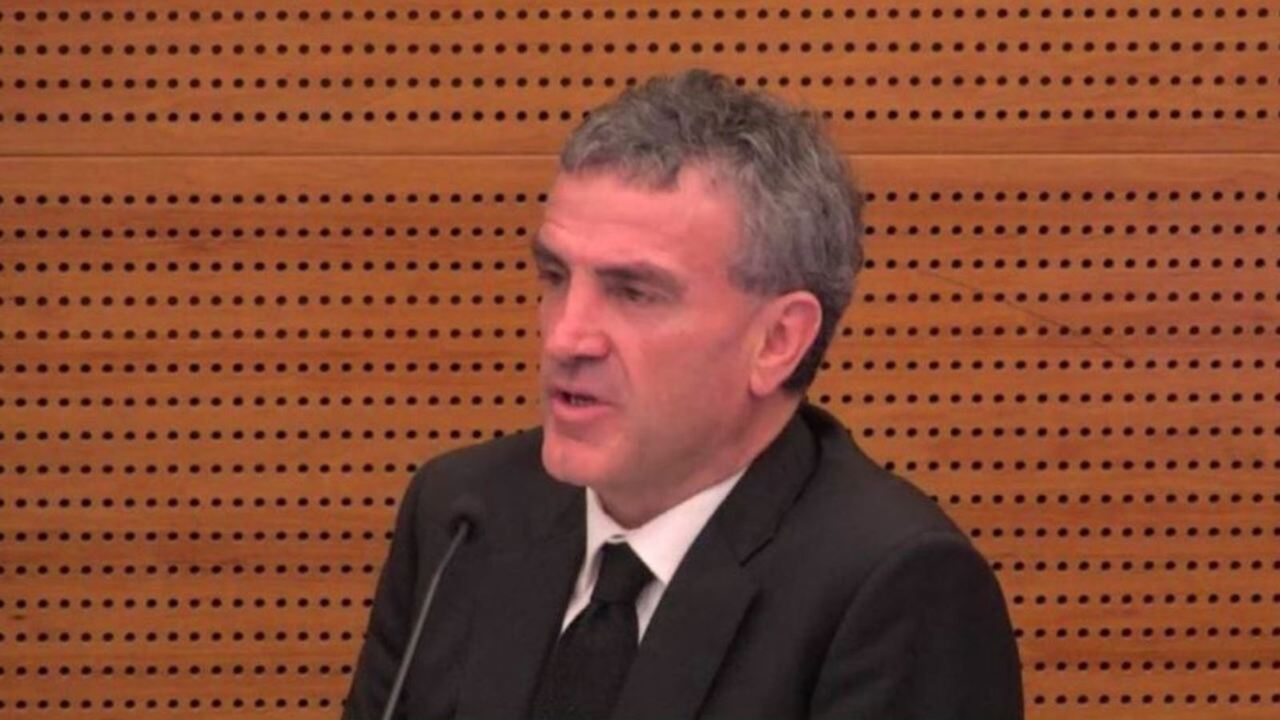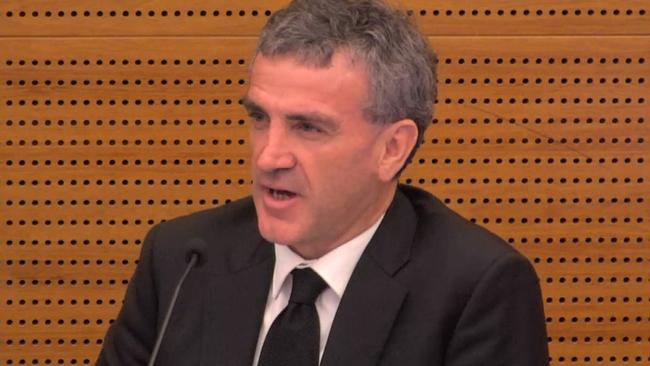Dover Financial Services engaged in ‘Orwellian doublespeak’ with misleading ‘Client Protection Policy’
A financial adviser who sensationally collapsed on the stand at the banking royal commission misled clients with “Orwellian doublespeak”, a court has found.

Banking
Don't miss out on the headlines from Banking. Followed categories will be added to My News.
A financial adviser who sensationally collapsed on the stand at the banking royal commission misled clients with “Orwellian doublespeak”, a court has found.
Dover Financial Services and its director Terry McMaster were taken to court by ASIC last year over its “Client Protection Policy”, which the corporate regulator alleged broke financial services law by misleading clients.
The Protection Policy was in place from September 2015 until March 2018 when it was withdrawn after ASIC raised concerns.
The company went out of business in June 2018 when its financial services licence was yanked and Mr McMaster removed from the industry as part of a court-enforceable undertaking with ASIC.
He appeared at the banking royal commission the following month, where he was subjected to more than two hours of intense questioning in which he was accused of lying.
Mr McMaster turned “white as a sheet” and began to breathe heavily before collapsing. Commissioner Kenneth Hayne QC immediately told staff to get help and call an ambulance before demanding the courtroom be cleared.
He was stretchered out and taken away by ambulance, in the most dramatic moment of nearly 70 days of gruelling public hearings last year.
In a scathing 43-page decision on Friday, Federal Court Justice Michael O’Bryan said the title of the “Client Protection Policy” document “was highly misleading and an exercise in Orwellian doublespeak”.
“To the contrary, it purported to strip clients of rights and consumer protections they enjoyed under the law,” he said.
The court found Dover published false, misleading or deceptive statements in the policy and that Mr McMaster, as Dover’s sole director, “was knowingly concerned” in the breaches of the ASIC Act.


The Protection Policy was provided to 19,402 clients with statements of advice by representatives of Dover.
It purported to be “designed to ensure that every Dover client get (sic) the best possible advice and the maximum protection available under the law”.
But the court found that the policy was false, misleading or deceptive as it did not ensure clients received the maximum protections available under the law, purported to remove or dilute the protections that clients would otherwise have had under the law, and sought to prevent clients from making a claim against Dover and its authorised representatives on the basis that advice could not be understood.
The court also found the policy sought to exclude Dover’s liability for most foreseeable breaches of the law by its authorised representatives, and sought to limit or exclude Dover’s liability to clients in a way that was inconsistent with the law.
“The limiting clauses … purported to remove mandatory consumer protections afforded to clients under the Corporations Act, often in a perverse manner, and did not otherwise afford clients the maximum protections available at law,” Justice O’Bryan said.
Mr McMaster was responsible for determining and approving the policy and requiring Dover’s representatives to incorporate the Protection Policy with statements of advice provided to clients, the court found.
“The contravening conduct was widespread and there is a public interest associated with the court declaring the conduct to be unlawful,” Justice O’Bryan said.
Dover’s primary defence was because ASIC had not sought to prove that any individual client had suffered loss or damage because of the Protection Policy, then the defendants had not engaged in misleading and deceptive conduct within the meaning of the ASIC Act.
Justice O’Bryan rejected that submission, noting that there had been a contravention of the law each of the 19,402 times the Protection Policy was sent to a client.
“Conduct is misleading or deceptive or likely to mislead or deceive if it has that tendency. It is not necessary to show that the conduct has had that effect — that is, that a person has in fact been misled,” he said.
In a statement, ASIC Deputy Chair Daniel Crennan QC said the law “imposes important obligations on companies licenced to provide financial advice and for the protection of their clients”.
“Clients who receive financial advice should not be misled as to what those obligations are and what they mean for them and their interests,” he said.
Originally published as Dover Financial Services engaged in ‘Orwellian doublespeak’ with misleading ‘Client Protection Policy’

